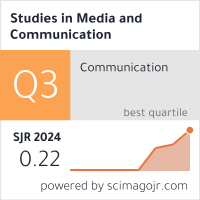Language and Society in Mead and Schutz
Abstract
The relationship between language and society has interested many scholars of various disciplines in the social sciences and communication studies. This article compared the viewpoints of two fundamental authors of the interpretive approach in sociology, Alfred Schutz – founder of phenomenological sociology, and George Herbert Mead – one of the founding fathers of the symbolic interactionism’s perspective, on the relationship between language and social interaction. The article first presents the theories of Mead and Schutz on the relationship between language and social interaction, then points out the similarities and the differences between these theories. Finally, the difficulties each theory encounters and how these difficulties are overcome is discussed. Although Mead’s and Schutz’s theories are complementary, the difficulties encountered in Mead's simplistic theory of communication are overcome in Schutz's phenomenological analyses of the everyday life world through the concepts of interpretative and expressive schemes, and of the relationship of We or the mutual tuning in relationship.
Full Text:
PDFDOI: https://doi.org/10.11114/smc.v11i7.6262
Refbacks
- There are currently no refbacks.
Studies in Media and Communication ISSN 2325-8071 (Print) ISSN 2325-808X (Online)
Copyright © Redfame Publishing Inc.
To make sure that you can receive messages from us, please add the 'redfame.com' domain to your e-mail 'safe list'. If you do not receive e-mail in your 'inbox', check your 'bulk mail' or 'junk mail' folders.
If you have any questions, please contact: smc@redfame.com
------------------------------------------------------------------------------------------------------------------------------------------------------

